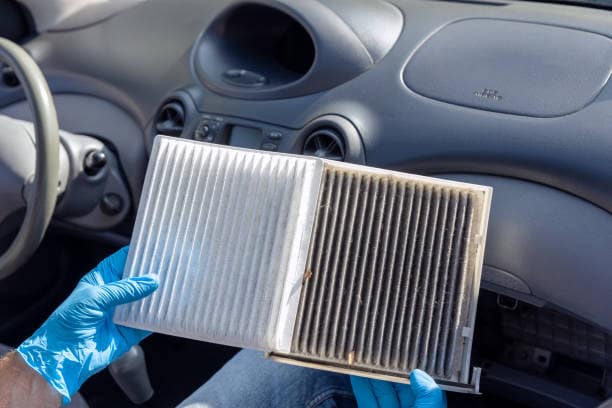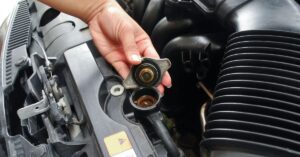Most of us probably don’t think much about the air that we breathe and so we take it for granted. However, we do have some important elements in our houses, concealed out of our sight, that help us breathe in clean air. Therefore, we are left with no choice but to come back to where we started, the air filter, which is a small device but can supremely enhance your experience indoors.
The cooling and other services may become inefficient after some time because of dust building on surfaces or due to other factors. It is one component that enhances comfort, health, energy efficiency, and other activities in the house.
In this guide, we’ll look at the aspects that help us understand the need for regular air filter replacement, when to replace the filters, and how to effectively replace the old filters. No matter whether you have lots of experience in DIYing or you are just beginning with home maintenance, there is a solution for you!
The Need for Air Filters
Air filters are unarguably the most important components for the quality of air in a room. They are the ones that capture dust, pollen, pet dander, and other debris so that it does not span the indoors of your house. This filtration is key in nurturing great health. It mutes and lessens allergy reactions and other respiratory problems by grasping irritants suspended within the air. Fresh air aids wellness.
In addition, quality air filters can improve the efficiency of the HVAC system. When the units are blocked or dirty, among other issues there is a rise in resistance to air circulation in the system. It this summer never feels comfortable and the energy bills tend to build up over the years. It does not mean that less expensive options will take absence. About the system as a whole and the measure of operative work ahead, it is necessary to use high-quality and appropriate filters. If they stopped exchanging part of these filters regularly it will mean that one will lose all the benefits gained without jeopardizing the health and the efficiency of the system.
Signs That It’s Time to Replace Your Air Filter
Indoor air filtration devices also perform a very important task, that is, air filtration. It is important for your health and comfort to know when to replace them. One obvious sign that the filter needs changing is poor airflow. If there is less air being pushed out from the HVAC system then the filter is probably dirty.
Another would be the increased levels of dust in your home. A filter that has accumulated dirt cannot trap dust particles easily which means that many of them are left harmless jauntily in the air. Allergic reactions may also require that the filter be changed. If a person experiences allergies and they are indoors, and the symptoms become more pronounced, it is worth checking the air cut-off to possess a filter.
Replace Your Air Filter Regularly, But How Often?
Replacements of air filters are not the sort of one-defit-as-all activity. Different factors contribute to how often you should replace it. For most homes, setting the baseline to three months is adequate. Meanwhile, for those who have repeated or suffer from allergies, you might change it once a month, if you feel it needs it. With pet hair and dander, the tendency will always be that the filter will be getting blockages.
Factors such as seasonal changes also make interferences. There may be a need to replace the filters more frequently during the peak heating or cooling seasons as they will be working more. Also, Consult the manufacturer’s information for such recommendations specific to your unit.
Step-by-Step Guide on How to Change the Air Filter
Changing your air filter is very simple. First, turn off your HVAC so that no one is injured. Then find where the air filter is located; it is often located in the return vent or close to the blower compartment. You might have to remove a cover or grille first.
Take out the old filter properly. Do check the worn-out filter. A nasty filter is an indication that proper maintenance may have been ignored. At this point, you should have gathered and prepared your new filter. Ensure that it is of the correct size and type as your air conditioning system requires. There are usually arrows on the sides of the filter that indicate the direction of the airflow, these must be directed inwards towards the blower.
Benefits of Regularly Replacing Your Air Filter
Improved air quality could be achieved by replacing the filter regularly. Unsoiled filters become very effective in filtering out dust, allergens, and other particulate pollutants. This implies that you will have an easy time breathing and will enjoy staying indoors. Replacing the air filters regularly will also improve the operation of the HVAC system in your home. Air will have to be forced to operate heating ventilation and air conditioning systems for cooling or warming when the filters are dirty. Such extra stress will be the reason to bills at the end of the month increase over the years.
Moreover, changing your filter also extends the life of the heating and cooling equipment. By restricting wear and tear, you will also minimize expensive repairs and or replacements in the future. Another positive value is less smelly air inside the house. Filters collect unfriendly smells from pets, food, or smoke making the ambiance healthier for long periods.
Conclusion
Ideal air filter cleaning should be included in every household due to the importance of indoor air. It affects you personally on health issues and also the HVAC system’s performance. You will be able to replace the filters optimally and ensure that they work efficiently by knowing how to install them and when to get a new one.
Above all, selecting the accurate filter type available based on your requirements improves not only the passage of air but also the filtration of any particles like any kind of allergy-causing pollen grains or any kind of air pollution. The return on time spent to complete this simple exercise is cleaner air, better energy usage, and a longer working life for the equipment. Every day, your house deserves fresh and clean air which is comfortable to breathe.
FAQs
1. What happens if I don’t replace my air filter?
Not replacing your air filter can also create a situation whereby the air quality indoors is not pleasing. It can also cause your HVAC unit to be overtaxed thereby increasing the energy bill and wear and tear received on it over time.
2. How do I determine the best air filter for my needs?
Choosing the most effective type will depend on the space that a person occupies, the number of people living there, as well as the type of allergens that an individual would be keen on reducing. Collaborating with an HVAC specialist can be of great help.
3. Why can’t I simply wash or clean my Disposable air filter instead of doing a replacement?
The majority of the single-use filters are made to be used only once. If you try washing them, it’s not guaranteed that their filtering capacity will return and in fact, could end up rendering the filter useless.
4. What tools do I need for changing the air filter one wants to replace?
There are no necessary special tools generally required – just the proper and convenient replacement filter. However, having gloves handy may also be helpful for keeping things clean, when doing that.
5. What is the price range to expect and pay for an air filter replacement?
Different types of replacement come with different prices. Replacement costs can go from $10 – $30 per unit but this is the simplest unit replacement. Making regular replacements can save you more money about efficiency.




